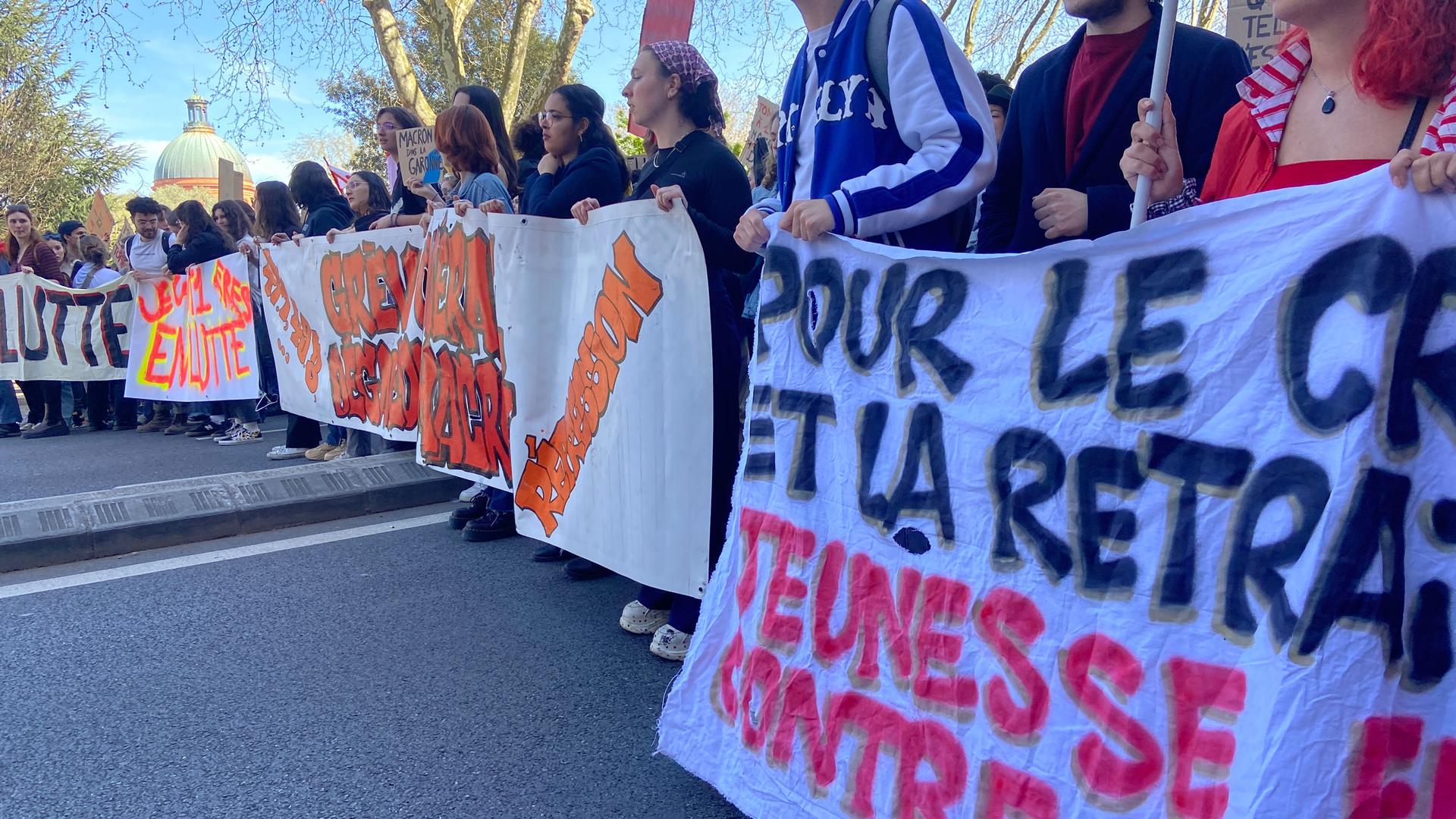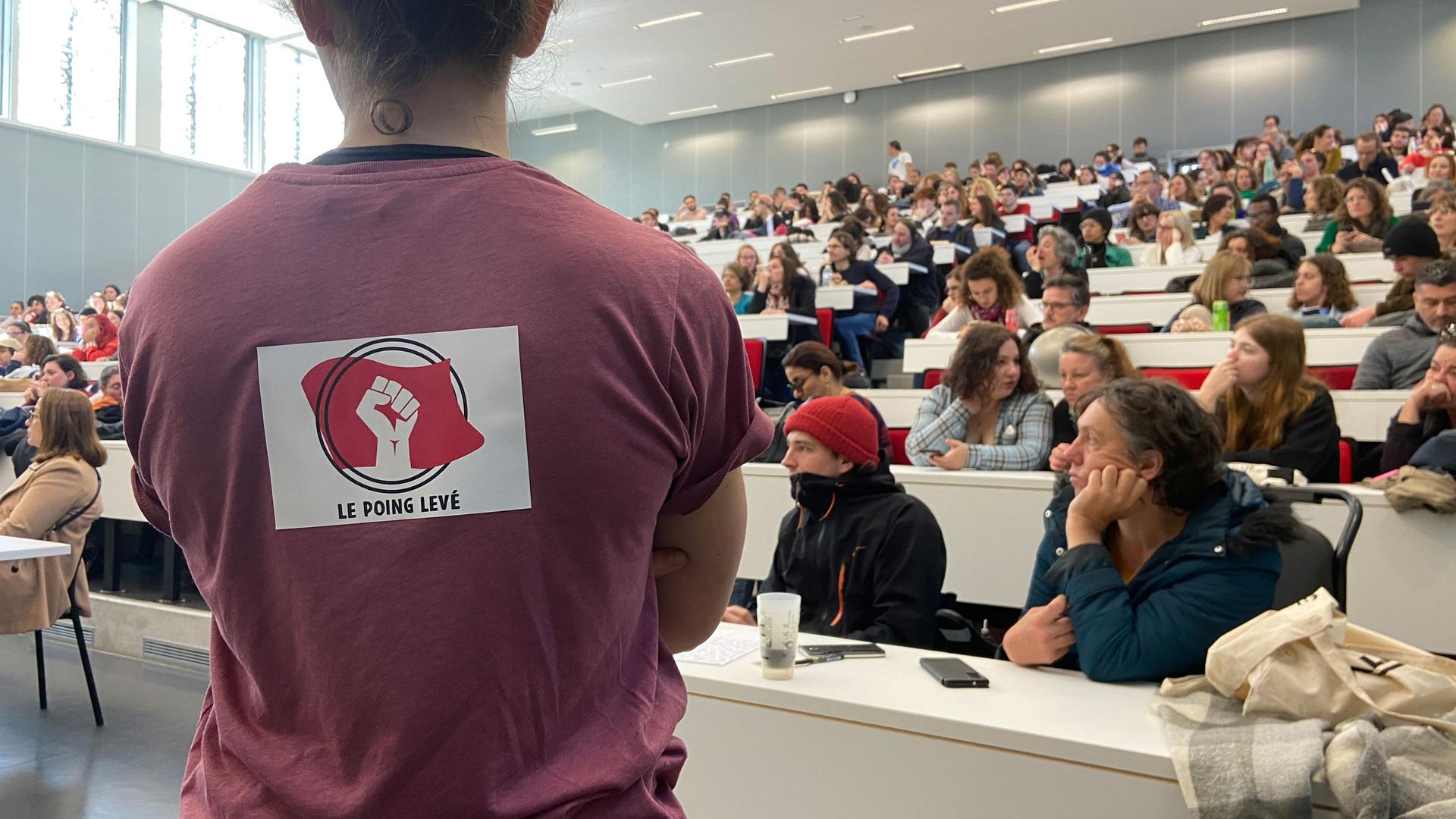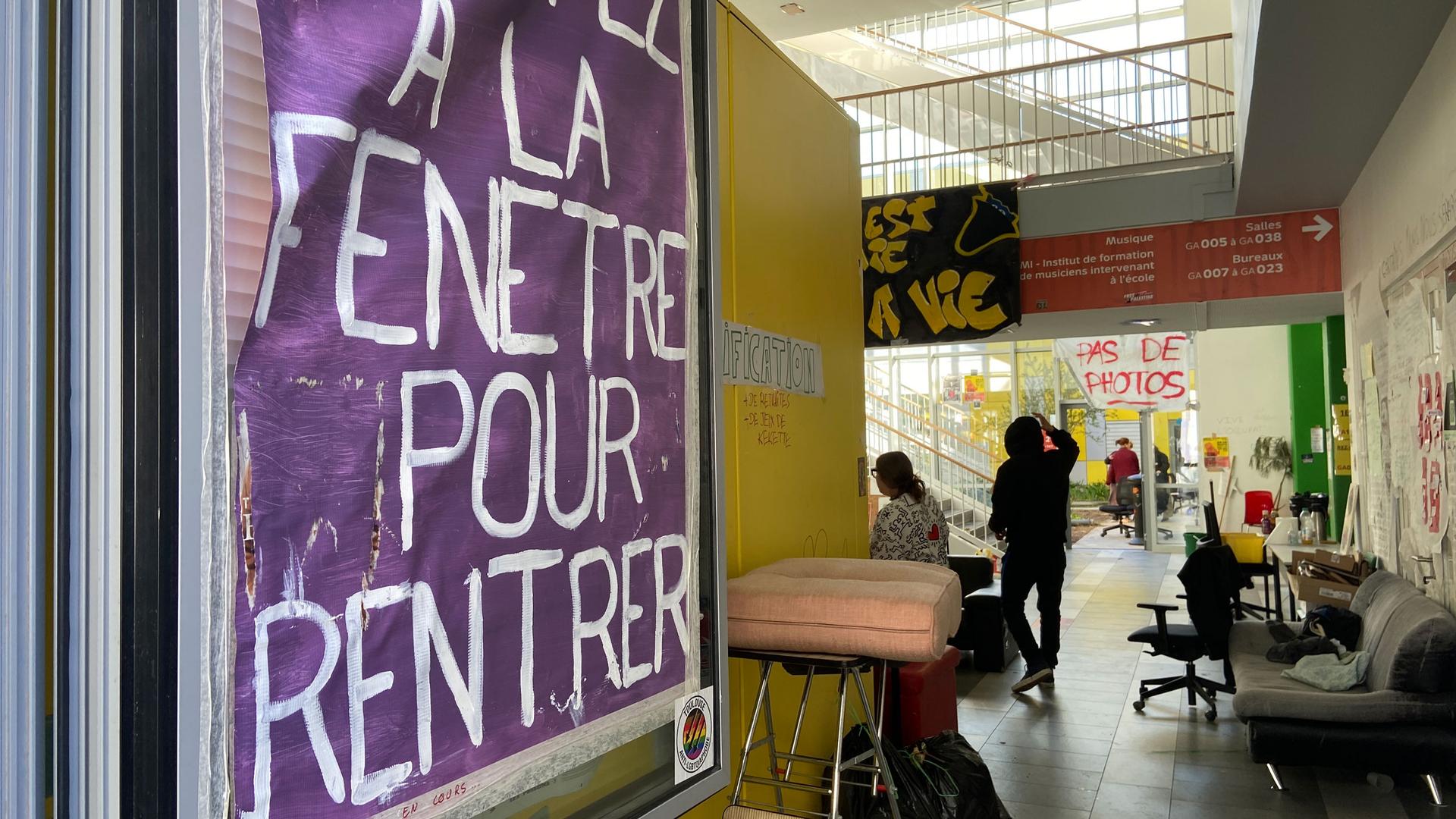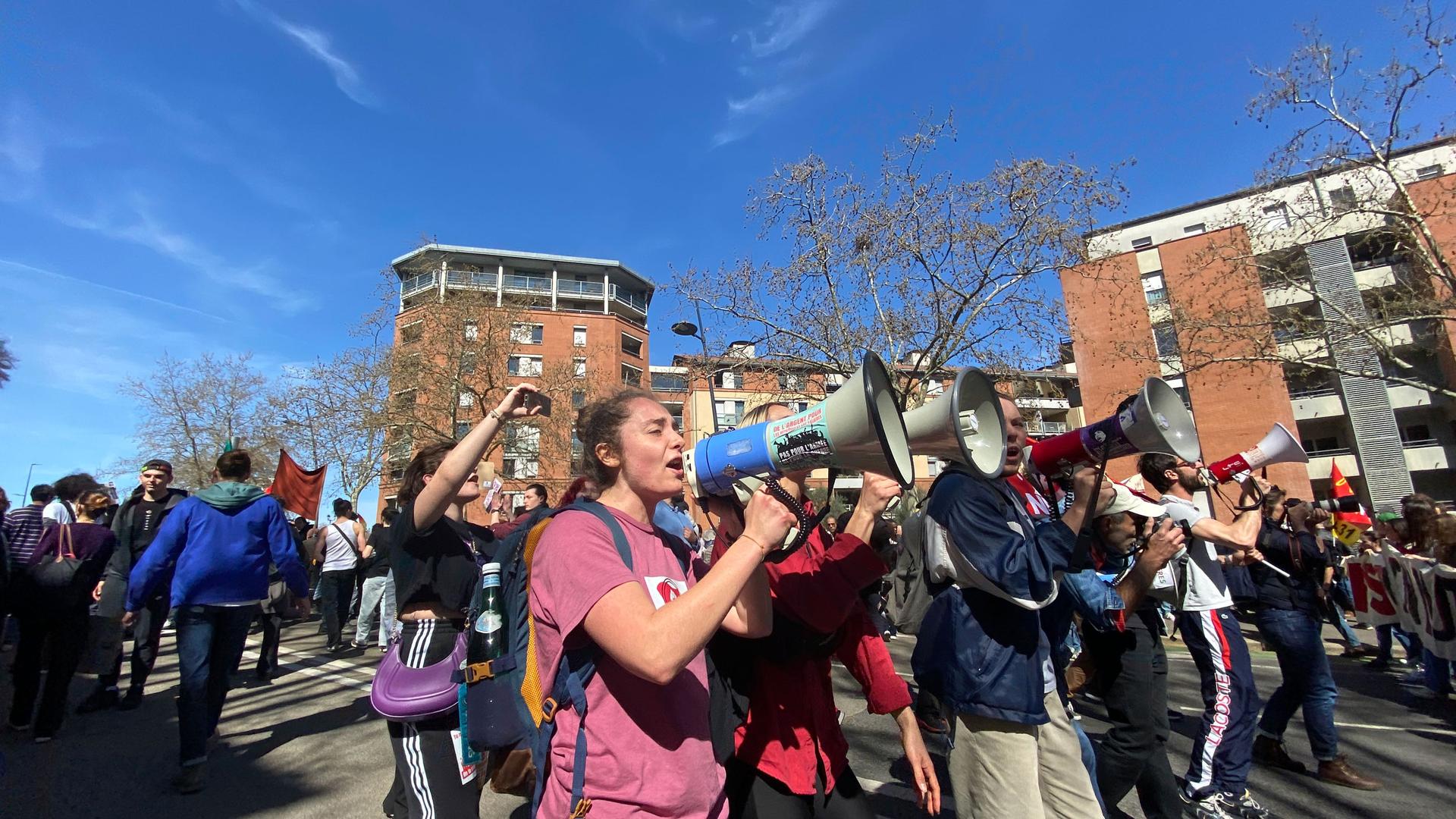This week in Toulouse, in southwest France, thousands of students joined the latest massive rally against the government’s plan to raise the retirement age.
Jonah Michelie, a 19-year-old college student, has marched in all 10 protests this year.
“It is amazing,” he said, leading a group of about 500 fellow students toward downtown Toulouse. “Now I feel useful. I believe I can help to make this country a better place.”
Millions of French people took to the streets this week for the 10th protest this year, and it’s not just workers who are angry about raising the retirement age from 62 to 64. College students are also showing their support, even though shoring up the national pension fund would likely benefit them later in life.

Up until now, Michelie said, he’d never done anything political. But President Emmanuel Macron’s proposal to raise the retirement age struck a nerve.
“My grandfather was a Communist Party member,” he said. “They went on strike to get a 60-year-old retirement age. And we will fight to get it back!”
Michelie’s dad is a steelworker. His mom cooks and cleans in a school. He’s the embodiment of France’s working class.
On the abandoned campus at the University of Toulouse, students barricaded entrances with desks and chairs. When students want to shut down class — this is how it’s done.

Michelie was on campus when he climbed through the window to a study hall that had been converted into some sort of student command center with people milling around and large signs everywhere calling for revolution and protest.
“We believe we need to work 40 years,” he said, “and the age needs to be stopped at 60 for most work and 55 for the hard-working people.”
When asked about the government’s concern that they could run out of money to pay for social security, Michelie dismissed it.
“I think that it’s all a lie,” he said.
“Because we all know that Macron has a preference for ulta-rich billionaires. We believe it is their part to pay more taxes.”
Michelie then rushed off to a student council meeting to plan for the day’s protest.

Two other students on campus who were guarding the entry-window to the makeshift student organizing space agreed to speak with The World: Liza and CJ. Wary of authorities and outsiders, they would not share their last names.
“I think the more we give work to older people, the more the younger people can’t work,” Liza said, regarding the retirement age. “Because there isn’t as much work as we’d like.”
“I think about 300,000 jobs are open now,” CJ added. “And at least 3 million people are looking for jobs. So, there is a mathematical problem, basically.”
In other words, the longer an older person holds on to a job, the fewer jobs there are for the young. That fear seems more real to these two than the threat of France’s social security running dry one day.
Later on, at the student council meeting, people were pounding on desks and singing as they then streamed out the door to head for the march downtown.

Michelie pointed out that the anger the French are feeling goes way beyond the pension reform that Macron pushed through with an executive order.
That, he said, was just the final straw.
“There is massive inflation,” he said, “and the salaries question; the equality between men and women. Many subjects that the government has lied about. Or done nothing about.”
Michelie remembers the massive yellow vests protests triggered by the global economic meltdown of 2008 and which continued until the pandemic hit. He was in high school.
“My friends and I just thought it was funny — but now I realize how important that movement was.”
The yellow vests movement was unlike anything France had ever seen — grassroots, decentralized and relentless. People were angry with banks, but also about job losses and the soaring cost of living.
“It was pure anger from the people,” Michelie said.
COVID-19 halted the demonstrations — but not that anger.

As Michelie and his classmates reached the stream of tens of thousands of protesters downtown, the mood was jubilant.
Michelie locked arms with colleagues, ready to lock horns with his government — one that appears just as unwilling to back down.
